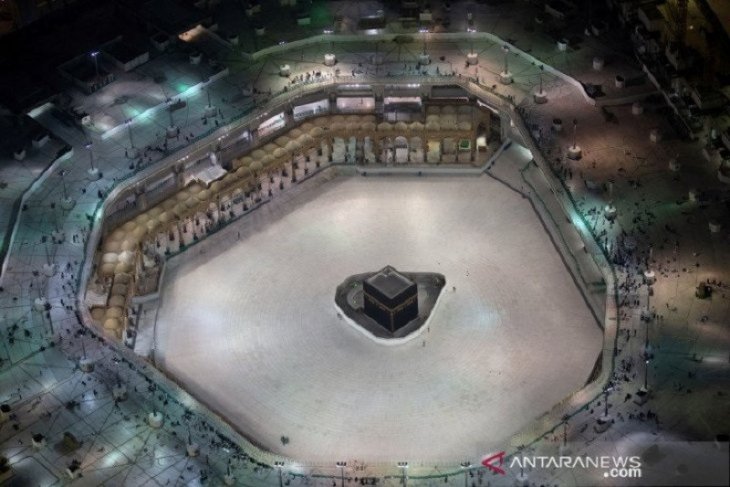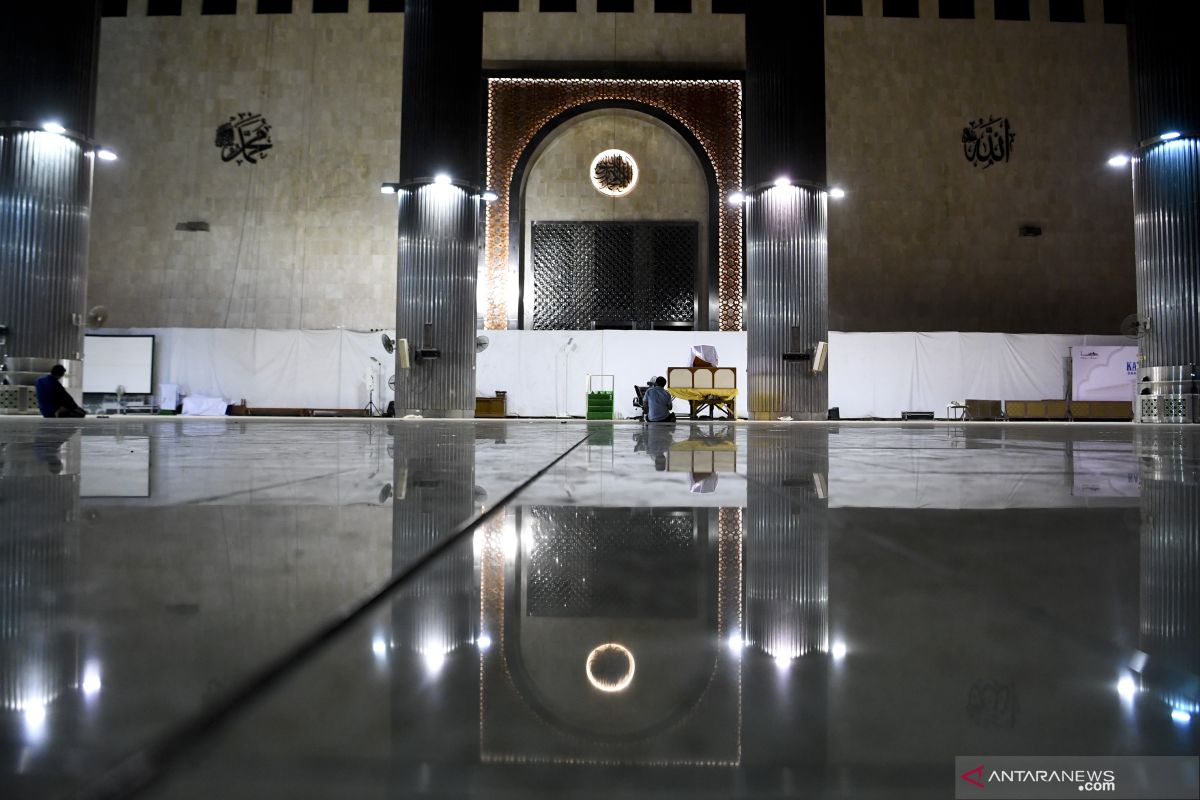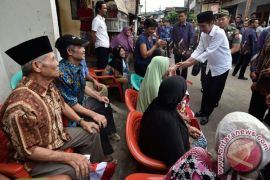That Allah is now showing us the rules of Islam are all prepared for any kind of circumstancesJakarta (ANTARA) - After he has taken iftar, or the evening meal, which is eaten for breaking the Ramadhan fast, and he hears the nearby mosque sound the adhan, Bobi Putra prepares for more prayer, first isha, then tarawih.
It is unusual for Putra to offer tarawih — a prayer that can only be performed during Ramadhan — by himself at his rented accommodation. It is a ritual he normally undertakes at a mosque with his wife and their three kids, together with other worshippers.
But, the COVID-19 pandemic has compelled him to pray from home this year.
Due to large-scale social distancing restrictions (PSBB) still in force in Jakarta and the central government banning ‘mudik’ (annual homebound exodus) to contain COVID-19 spread, Putra has not been able to join his family in Semarang for Ramadhan.
As the epicentre of the outbreak in Indonesia, Jakarta has become the first red zone to implement a "partial lockdown”, which will now be lifted on May 22, just one or two days before Ramadhan ends and Eid al Fitr arrives.
The provincial government has restricted all community movement, especially if it involves many people. Religious activities are not allowed in groups, which means all mosques have been closed to public.
However, this aligns with President Joko Widodo's policy of "work from home, study from home, perform prayer at home”.
Thus, this year, Putra and many people in Jakarta will perform tarawih in solitude.
"I honestly feel that it (the current situation) is poignant. But for me, it has nothing to do with the essential meaning of Ramadhan," Putra remarked.
"I may lose the moment of togetherness with the people I love, yet I still have my full devotion in performing prayers,” he added.
Global occurrence

It is not just Indonesia, the most populous Muslim country in the world, that is observing the Hijri Calendar's 1441 Ramadhan in a different way this year.
Egypt, where Muslims make up 90 percent of the population, has also banned collective religious gatherings during Ramadhan, including public iftar, when families or friends dine together at sunset as well as collective social activities, such as mass iftar for poor people.
The supreme leader of the Islamic Republic of Iran, Ayatollah Ali Khamenei, has asked people to comply with social distancing and stay-at-home rules, while creating the same Ramadhan atmosphere at home.
"Because of being deprived of public prayings, speeches and so on during Ramadhan, we should create the same senses in our homes," Ayatollah Ali Khamenei said when he addressed the nation earlier this month.
Some prominent historical mosques in Middle East countries, which usually host Muslims from all over the world, have also been closed.
Saudi Arabia has suspended prayers at two Holy Mosques, Masjid al-Haraam of Mecca, that surrounds the Kaaba--centre for Qibla, and Masjid an-Nabawi of Medina.
"It pains me to welcome the glorious (period) of Ramadhan under circumstances that forbid us from prayers in mosques," Saudi's King Salman was quoted by Reuters as saying.
The third holiest site for Muslims, Masjid al-Aqsa in Jerusalem, has also been closed for Ramadhan.
Online preaching
However, Putra said, his foremost concern is offering sincere prayers given the difficult and unprecedented situation.
"As I am only staying at my rent-room this Ramadhan, I am reciting the Quran and having video calls with my family so I can look at the kids reciting the Quran as well. Also, (I) am watching Youtube for Ramadhan sermons," Putra noted.
He named Cak Nun, Gus Lik or KH Douglas Toha Yahya, and Gus Baha among the Muslim preachers he has been listening to, and whose sermons can be freely accessed on Youtube.
Using online platforms to listen to sermons that are usually conducted at mosques is inevitable, perhaps even the safest option, and the only one that makes sense during this outbreak, besides watching religious programs on television.
The largest mosque in the South East Asian region, Masjid Istiqlal, located in the centre of Jakarta, for instance, has halted all activities during Ramadhan, but has moved Quran recitation and preaching to Youtube on Sahabat Istiqlal’s account.
"Insya Allah, during the month of Ramadhan, this account will submit daily videos of imam and muadzin of Masjid Istiqlal reciting the Quran prior to iftar, so that all worshippers could have a worthwhile time and gain the God's reward," according to the description posted on the account.
Abdullah Gymnastiar, or Aa Gym, a prominent Muslim preacher in the country, who leads the Islamic boarding school of Daarut Tauhiid, also holds sermons regularly on his official social media account.
He has been sharing his thoughts and views live on Twitter, particularly about the order on praying at home during Ramadhan.
"That Allah is now showing us the rules of Islam are all prepared for any kind of circumstances..." Aa Gym said.
“People who usually pray at mosque, but can’t do so for now because of (the pandemic) situation will receive the reward just as they pray together in mosque. People who obey the Ulema’s (Muslim clerics) and the government’s guidance, as well as prevent the bad thing from happening, will also receive reward,” he declared.
He said people may get higher reward for praying at home, rather than insisting on going to the mosque, which can potentially expose them and others to harm.
"I, myself, abide by the Ulema's recommendation, as they are all competent. The core value of Islam is indeed salvation, physically and spiritually, in life and after life, for oneself, as well as other people," Aa Gym noted.
Related news: Fasting during the COVID-19 outbreak
Related news: Wisdom of Ramadan amid coronavirus outbreak
Related News: Impact of COVID-19 on the tradition of 'mudik' in Indonesia
Editor: Gusti Nur Cahya Aryani
Copyright © ANTARA 2020










